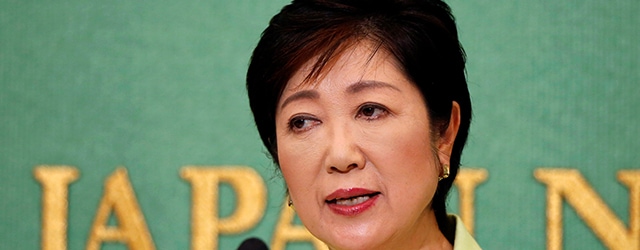Yuriko Koike has made history as Tokyo's first female governor.

Elected Tokyo’s first female governor, Yuriko Koike has made history in Japan. She ran as an independent in defiance of her party—the ruling Liberal Democratic Party—which supported the lesser-known Hiroya Masuda. Koike, 64 years old and a veteran politician, hopes to bring the city’s financial center back to its former glory.
Her first priority is to improve transparency of city finances and get the 2020 Olympics on track. Olympic preparations have suffered numerous scandals, including a redesign of the new national stadium, copyright wrangles and allegations of bribery. The latest setback was the resignation of Koike’s predecessor, Yichi Masuzoe, following public outrage over the misuse of public funds.
Koike, fluent in English and Arabic, made a name for herself first as Environment minister—launching the Cool Biz campaign encouraging a summer work dress code to reduce air-conditioning use—and then during a short stint as Defense minister. Koike, who once described Japan’s glass ceiling as an “iron plate,” recently named Margaret Thatcher as a role model.
Dr. Ulrich Volz, a senior lecturer in economics and member of the Japan Research Center at the University of London, tells Global Finance that Koike is reform-minded and he expects her pro-business stance to be well-received in the business community. One of her flagship policies is to leverage Tokyo’s Special Economic Zone status to restore the city’s role as a global financial hub.
“Tokyo will have to become more welcoming to foreign talent and their families,” says Volz. “It will also have to facilitate business for international financial firms. However, trying to get a competitive edge by lowering regulatory standards would be a risky strategy.”
Koike’s platform includes a push for more women in the workforce, with a key policy to reduce waiting lists for childcare. Japan ranks 101 out of 145 nations in gender equality, according to the World Bank. Progress in Tokyo, whether in women’s issues or the broader economy, can spread through the country.
“Given that Tokyo generates around one-fifth of Japanese GDP, developments in Tokyo will inevitably impact the Japanese economy at large,” Volz says. “As governor of Tokyo, she can also contribute to the success of the Olympics, which would help boost national sentiment.”



